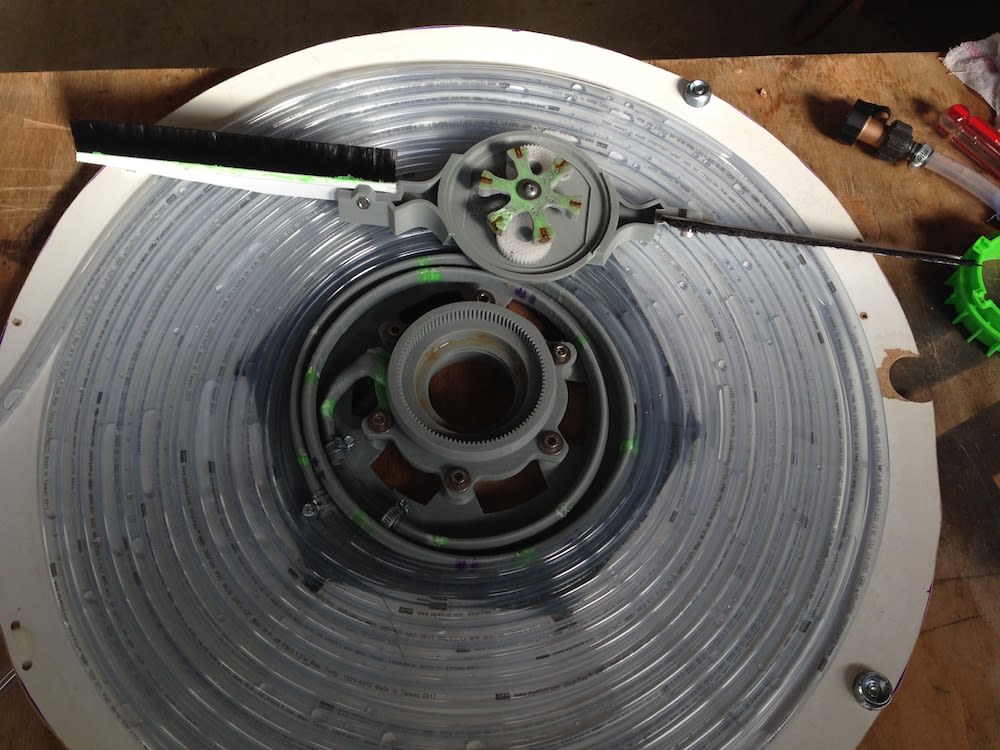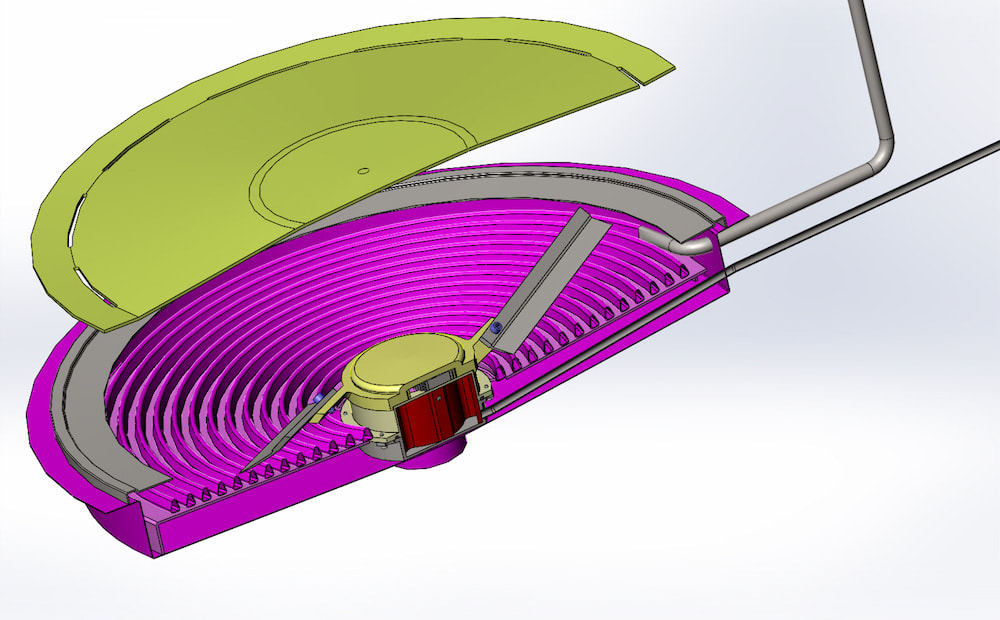The water flowing down the shower drain contains a lot of heat that is wasted. Using average flow rates and temperatures from the EPA, the wasted power is 18 kilowatts. The average flow rate is 2.5 gallons / minute and the drain water is 50°F hotter than the water entering your house. My new funnel shaped heat exchanger replaces the traditional shower drain and recovers half of that heat. The heat is transferred to the incoming cold water as it travels to the shower’s mixing valve.
Many inventors have attacked this problem. The cold water, as it flows inside the supply tubing, has good heat transfer because its flow is turbulent. Earlier attempts tried to increase the surface area for better heat transfer. But the problem has always been that the draining water is moving slowly. This gravity flow has a low heat transfer coefficient because the flow has no agitation or forced convection. The draining water travels down to the drain without giving up its heat.
This new design improves the heat transfer in two ways: 1) A rotary sweep agitates the draining water to create a turbulent forced convection flow and 2) the flow is swept around a long spiral path to the drain so there is more time for the heat to be transferred.
The rotary sweep is powered with an impulse water turbine. The turbine consumes 10 psi drop in the incoming cold water flow. The turbine is sealed and has no penetrations that could allow the draining water to contaminate the water supply.
Here is how it works. The typical shower drain is about 5” in diameter. The new heat exchanger as a 26” diameter cover. It is slightly higher in the middle so the water drains toward the outer edge. There is falls onto the heat transfer funnel and is swept around in a downward spiral to the drain.
If the heat exchanger needs cleaning, the cover can be removed to expose the heat transfer surface. Additionally the rotary sweep can be removed without tools. It sits on top of the turbine and is magnetically coupled. There is no drive shaft or shaft seals.
Video
Like this entry?
-
About the Entrant
- Name:Paul Howard
- Type of entry:individual
- Software used for this entry:SolidWorks
- Patent status:pending








